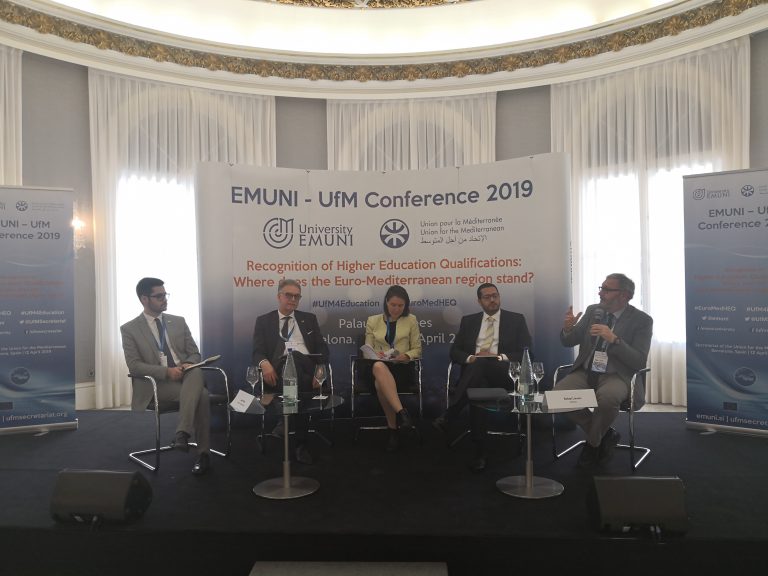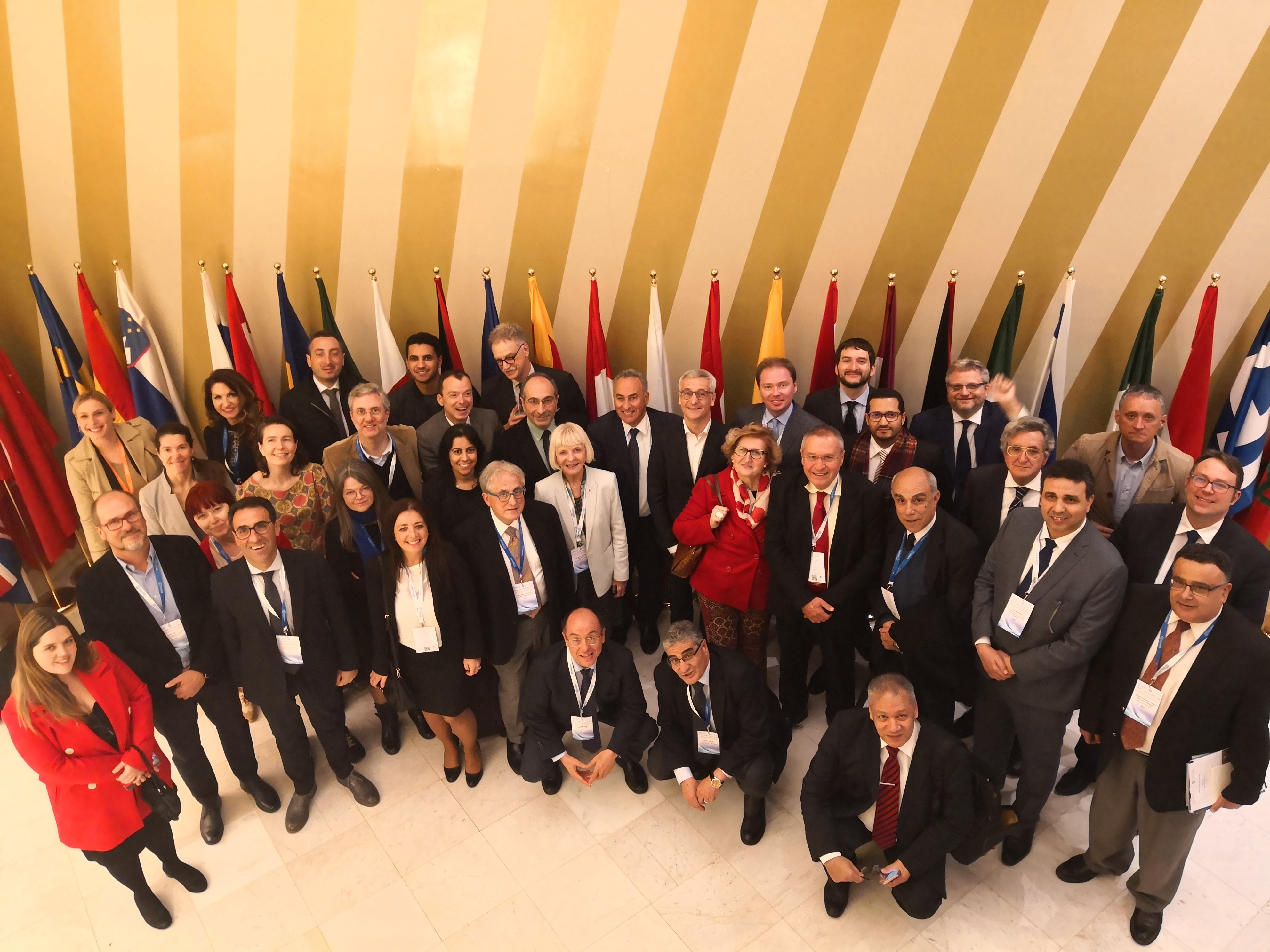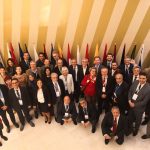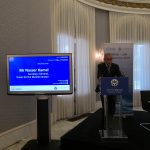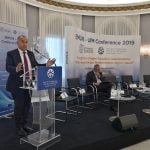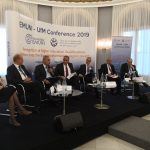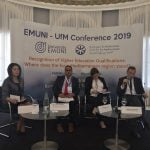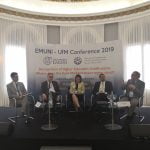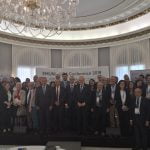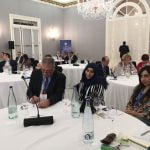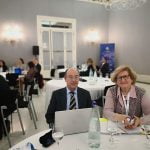Recognition of Higher Education Qualifications: Where does the Euro-Mediterranean region stand?
EMUNI-UfM Conference took place on Friday, 12 April 2019, at the Union of the Mediterranean Secretariat in Barcelona, Spain. The conference aimed to offer updates on recent developments and initiatives related to the recognition of higher education qualifications in the Euro-Mediterranean region, provide a platform for multi-stakeholder regional dialogue and constructive exchange on progress made and remaining obstacles, look at possible policy and operational recommendations for the future and strengthen regional cooperation on the topic.
The Conference was opened by Mr. Nasser Kamel, Secretary General of the Union for the Mediterranean, and Prof. Abdelhamid El-Zoheiry, President of the Euro-Mediterranean University (EMUNI). While Mr. Kamel focussed on the importance of the regional approach to close discrepancies between the high level of education and the level of unemployment, Prof. El-Zoheiry mentioned digitisation and globalisation as main drivers of change in the education sector and the underlined the need for a multi-stakeholder dialogue.
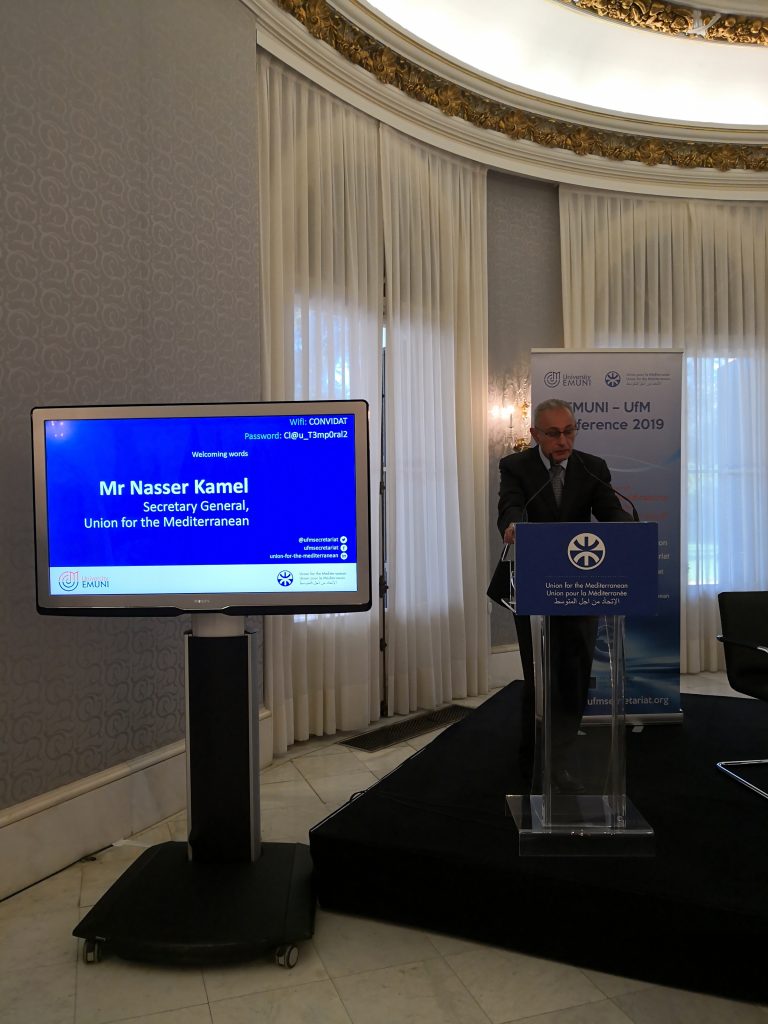
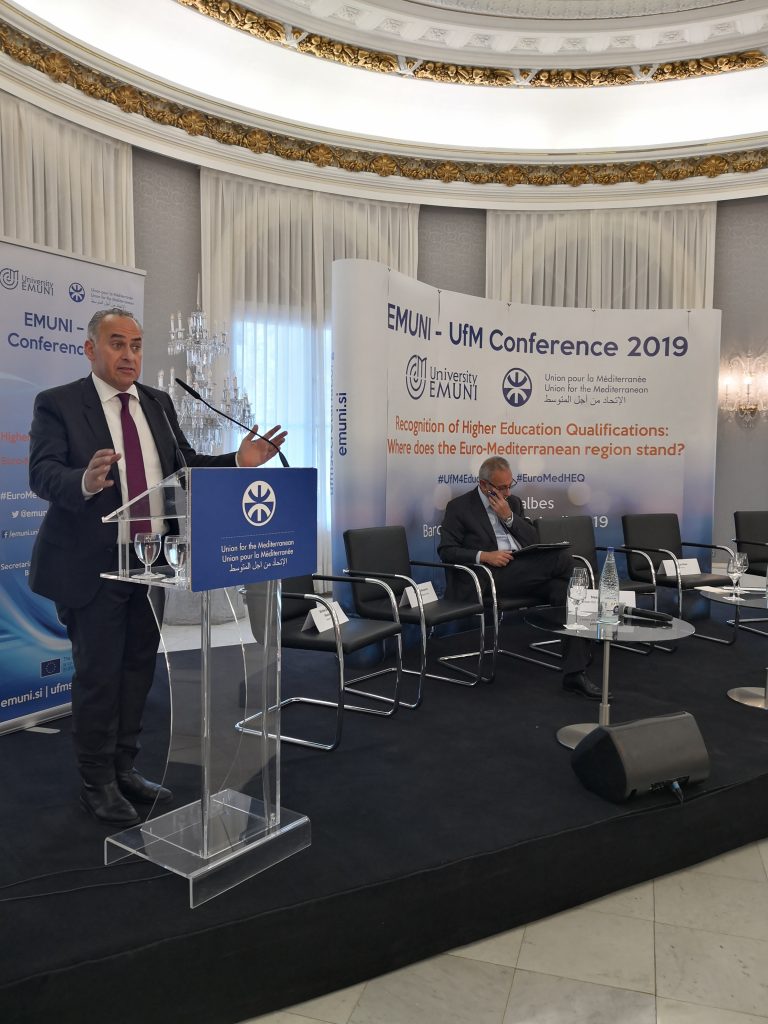
The first pannel discussed The vision of a Euro-Mediterranean Higher Education and Research area. The main questions related to the Euro-Mediterranean commitment to creating an integrated Higher Education and Research area, how much work was done over the last decades and remaining challenges as well as opportunities for moving forward.
The Panel was moderated by Prof. Abdelhamid El-Zoheiry (President of the Euro-Mediterranean University). The Panelists, H.E. Jernej Pikalo (Minister of Education, Science and Sport, Slovenia), H.E. Mr. Abdalrahim Alfarra (Ambassador of Palestine to the EU, Belgium and Luxembourg), Prof. Mostapha Bousmina (President of the EuroMed University of Fes), Prof. Michèle Gendreau-Massaloux (Rector Emerita), Prof. Amr Ezzat Salama (Secretary General, Association of Arab Universities) and Mr. Nasser Kamel (Secretary General of the Union for the Mediterranean) discussed trust and transparency between countries and as ge cornerstone for cooperation. They believe that such holistic approach to strengthen higher education qualifications at a Euro-Mediterranean level, based on diversity would strengthen mutual understanding and lead to a more transparent region.
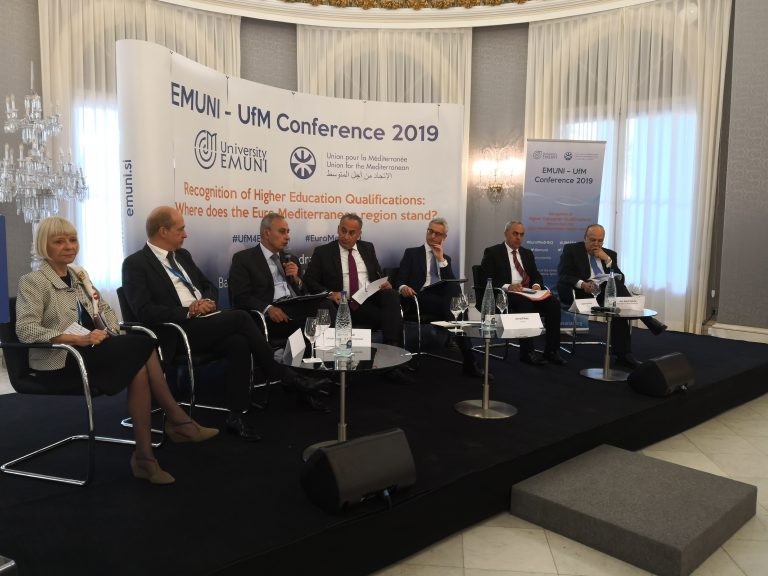
The second Panel discussed Transparency and portability of qualifications across the Mediterranean.
The Panel was moderated by Dr. Cloud Bai-Yun (Director of the UK National Agency for the Recognition and Comparison of International Qualifications and Skills). Panelists Mr. Anasse Bouhlal (Programme Specialist of Higher Education, UNESCO Regional Bureau for Education in the Arab States), Prof. Georges Yahchouchi (Provost of the Holy Spirit University of Kaslik) and Mrs. Nicole Font Guedes (Harmonisation of African Higher Education Quality Assurance and Accreditation Initiative implementing consortium) looked at the state of the art and practice of the recognition of foreign credits and qualifications among the UfM countries, signs of a possible convergent trend, procedures and practical tools in this context and looking at what could be learnt from other regions.
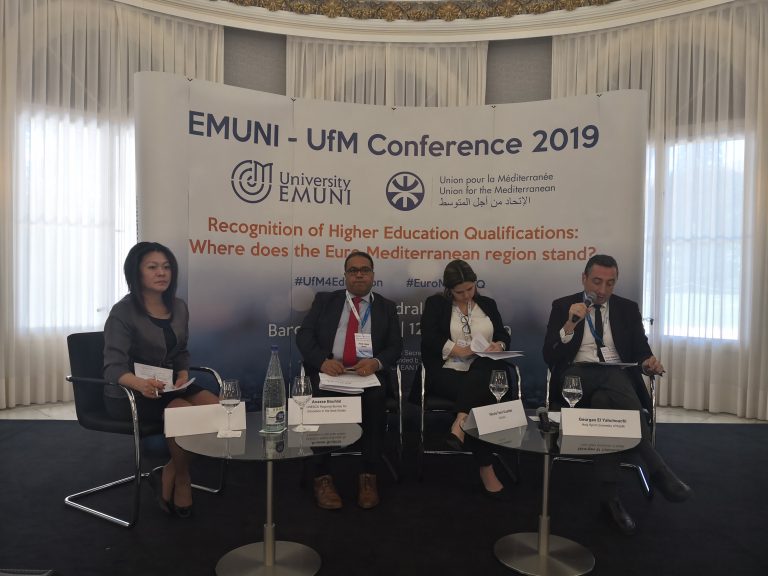
The final Panel closed by discussing Recognition of foreign qualifications as a tool for increased mobility, youth employability and regional integration in the Mediterranean.
This panel was chaired by Mrs. Emmanuelle Gardan (Head of Sector for Higher Education and Research, Union for the Mediterranean). Panellists Prof. Maurizio Fermeglia (Rector, of the University of Trieste), Prof. Karim Moustaghfir (Associate Professor & Mediterranean Programme Coordinator at Al Akhawayn University), Mr. João Mourato Pinto (President of the Erasmus Student Network) and Mr. Rafael Llavori (Head of Unit for Institutional and International Relations of the National Agency for Quality Assessment and Accreditation of Spain) looked at how mutual trust in the quality of foreign education be further developed across the Mediterranean, what novel perspectives have been brought by new technologies and what benefits could better mutual recognition of qualifications bring in terms of socio-economic impact. The concept of hiring based on qualifications rather than credentials was discussed in detail as well as inherent biases for own programmes.
